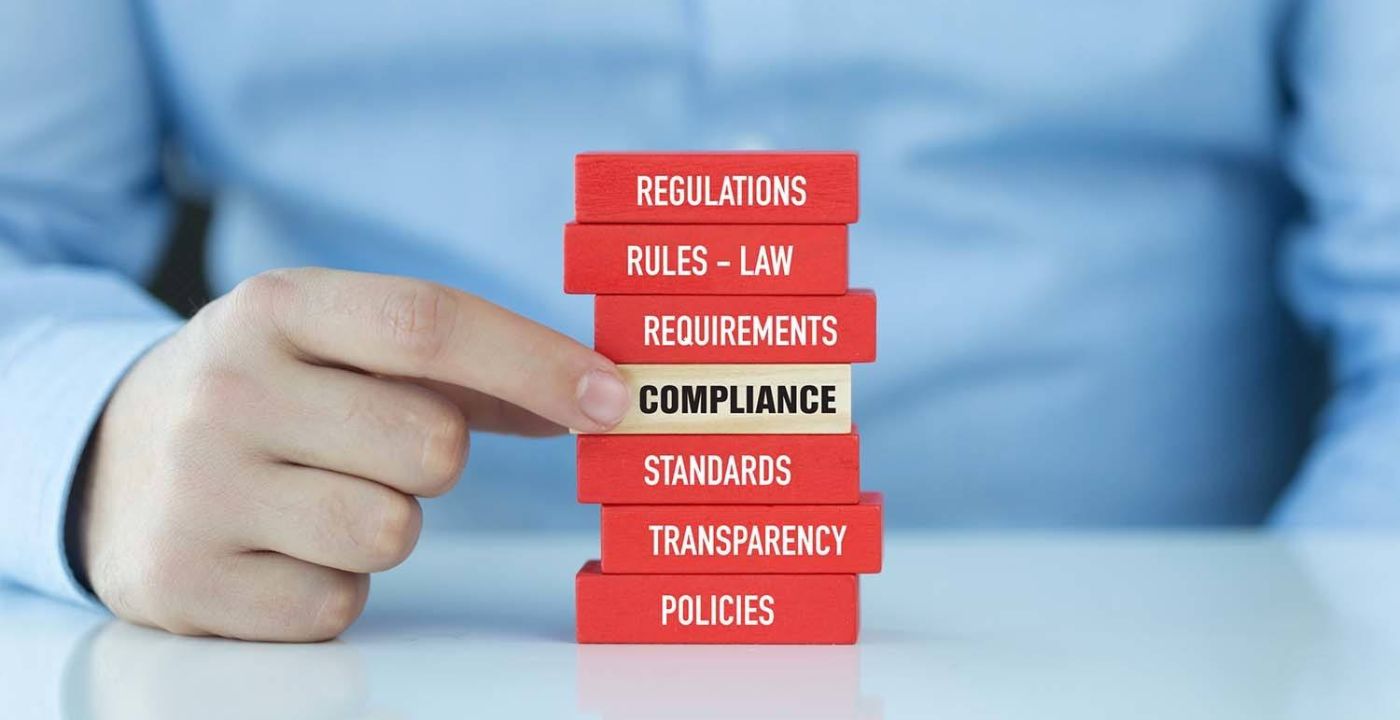
Key Summary
- Landlords in the UK face extensive legal responsibilities, including property safety, tenant rights, and regulatory compliance.
- Regular safety checks, deposit protection, licensing, and data protection are crucial components of landlord compliance in 2023.
- Non-compliance can result in severe penalties, including fines, legal action, and damaged relationships with tenants.
What are a Landlord’s responsibilities?
Being a landlord is not merely about renting out a property; it involves a multitude of legal responsibilities to ensure the safety and rights of tenants. As a landlord, you must:
- Keep your rented properties safe and free from health hazards. This involves routinely inspecting the property for potential risks, like mould or structural problems, and promptly addressing any issues.
- Ensure all gas and electrical equipment is safely installed and maintained. This is pivotal for both the safety of the tenant and the protection of the property. Regularly schedule checks from certified professionals.
- Landlords are obligated to install a smoke detector on each level designated for living purposes, and any room with a permanent combustion device used as living space must have a carbon monoxide alarm.
- Provide an Energy Performance Certificate for the property. This certificate provides insights into the energy efficiency of the property, which is a valuable piece of information for tenants.
- Protect your tenant’s deposit in a government-approved scheme. This ensures the tenant’s deposit is safe and can be returned to them when they move out, given all terms are met.
- Verify your tenant has the right to rent your property if it’s in England. It’s essential to ensure your tenant can legally rent in the UK.
- Give your tenant a copy of the ‘How to rent’ checklist. Providing this at the commencement of their tenancy equips them with knowledge on their rights and responsibilities. Sharing it electronically, such as through email, is acceptable and efficient.
Did You Know? A well-maintained property with all compliance boxes ticked can potentially offer landlords a 5-10% rental premium compared to non-compliant properties in the same area.
Do I Need a Landlord License?
The necessity of a landlord licence largely hinges on the property’s location and the regulations of the respective local authority. Selective licensing schemes were unveiled to mitigate the influence of unscrupulous landlords.
A notable exception lies with properties classified as HMO (House in Multiple Occupation). These properties mandate the acquisition of a licence irrespective of the local council’s requirements. Landlords who neglect to secure the necessary licence could find themselves facing civil penalties that can escalate up to £30,000.
Do I Need Landlord Insurance?
Landlord insurance isn’t just recommended; it’s often seen as indispensable. Numerous buy-to-let mortgage providers stipulate that property owners must possess such insurance as part of their loan agreement.
Standard landlord insurance policies encompass accidental damages to the property. Expanded coverage is available for landlords offering furnished rentals, those seeking security against unpaid rents, and liability for any untoward incidents within the rented premises.
Landlord Compliance Checklist 2023

The UK’s landlord compliance landscape is intricate, reflecting the importance of ensuring tenant safety and upholding their rights.
It is crucial for landlords to understand what is needed of them, especially legal requirements, so if you are looking for a landlord compliance checklist for 2023 and beyond, look no further!
Gas Safety Certificate
For a landlord, ensuring the safety of gas installations in their rented property is paramount. It’s essential to conduct yearly inspections through engineers who are officially registered under the Gas Safe banner. These engineers meticulously evaluate gas appliances, fittings, and flues to confirm their safety. Once the inspection is complete, tenants should receive a copy of the certificate within 28 days.
Energy Performance Certificate (EPC)
The EPC is a comprehensive document that outlines the energy efficiency of a property, potential consumption costs, and offers recommendations for energy conservation. Landlords must engage certified professionals for these assessments. It’s important to note that an EPC remains valid for ten years from its issue date.
Licensing
Licensing is a systematic approach aiming to uplift the standards of the private rental sector and pinpoint negligent landlords. The necessity for a licence can vary depending on local councils, property type, and geographical nuances. For instance, Houses in Multiple Occupation (HMOs) often have specialised licensing conditions.
Electrical Safety
Ensuring electrical safety is about making certain that all electrical installations in a rented property meet the standards for safe living. Every five years, landlords should engage certified electricians for thorough safety evaluations, which include Portable Appliance Testing (PAT) for the property’s appliances.
Fire Safety
Fire safety regulations are rigorous, aiming to shield tenants from potential fire hazards. Smoke alarms are a mandatory installation on each level of a rental property. Additionally, rooms that host functional fireplaces or wood burners need carbon monoxide alarms. It’s a landlord’s responsibility to verify the functionality of these alarms at the beginning of every tenancy.
Right to Rent
This compliance ensures that rented properties are occupied by individuals with a valid immigration status in the UK. Landlords are expected to diligently check and store copies of pertinent documents, such as passports or resident permits, confirming a tenant’s lawful residency in the UK.
Anti-money Laundering Checks
Designed to prevent the introduction of unauthorised funds into the rental sphere, landlords are expected to be vigilant. If there are suspicions concerning a tenant’s financial sources, they must conduct exhaustive checks. This could encompass tracing the genesis of notable monetary transactions or obtaining references from previous landlords or employers.
Deposit Protection
This system focuses on preserving the tenant’s deposits. Landlords are obligated to allocate these deposits into an accredited government-backed tenancy deposit scheme (TDP) within a month. It’s also the landlord’s duty to apprise tenants about the particulars of the TDP used and elucidate the conditions and procedures surrounding deposit refunds at tenancy’s end.
Habitability and Repairs
Landlords have the pressing responsibility to ensure their properties are livable. This includes attending to timely repairs, ensuring essential services, like water and electricity, are uninterrupted, and in some cases, dealing with mould.
Legionella Control
To prevent the onset of Legionnaires Disease, landlords must periodically conduct risk assessments, focusing on potential Legionella exposure. If significant risks are detected, expert services should be enlisted to secure the property’s water system.
Data Protection
The General Data Protection Regulation (GDPR) mandates landlords to handle tenants’ personal data judiciously. This entails securely storing this data and ensuring its use aligns with its intended purpose.
House in Multiple Occupation (HMO) Standards
For properties classified as HMOs, there are enhanced safety and well-being standards. This can encompass stipulations about room dimensions, fire safety protocols, and mandated amenities.
Furniture and Furnishings Fire Safety
All furniture within a rented property must adhere to the fire resistance norms articulated in the Furniture and Furnishings (Fire Safety) Regulations. This is pivotal in minimising fire risks stemming from flammable furniture materials.
Benefits of Compliance
Being compliant isn’t just a legal obligation for landlords; it offers a myriad of tangible and intangible advantages:
Trust and Reputation
Consistent compliance fosters trust among tenants, potential renters, and even other property owners. A reputation for being compliant can often lead to easier tenant acquisition and lower vacancy rates.
Property Value Preservation
Regularly adhering to safety and maintenance standards can ensure that the property remains in optimal condition, potentially preserving or even increasing its value over time.
Fewer Legal Complications
Staying updated with and adhering to regulations reduces the risk of legal disputes, which can be both costly and time-consuming.
Financial Savings
Avoiding penalties and potential lawsuits by being compliant can save landlords significant amounts in the long run.
Peace of Mind
Knowing that all regulations are met and that tenants are living in safe, well-maintained properties provides landlords with peace of mind, allowing them to focus on other aspects of property management or personal pursuits.
Penalties for Non-Compliance

Failing to adhere to compliance standards can have severe repercussions for landlords:
Hefty Fines
Depending on the nature and severity of the breach, non-compliant landlords can face substantial fines. For instance, neglecting to secure the necessary HMO licence can result in penalties upwards of £30,000.
Legal Prosecution
Serious breaches, especially those that endanger tenant safety, can lead to legal action. This not only tarnishes a landlord’s reputation but can also lead to additional financial burdens in terms of legal fees and potential compensation payouts.
Loss of Licence
Continuous non-compliance can result in the revocation of a landlord’s licence, prohibiting them from renting out properties.
Reduced Property Value
Properties known to have compliance issues can decrease in value, making them less attractive to potential buyers or renters.
Higher Insurance Premiums
Non-compliance can be viewed as a risk by insurance companies, leading to increased premiums or even refusal of coverage.
Strained Tenant Relationships
Non-compliance can strain relationships with tenants, leading to disputes, premature contract terminations, and difficulties in retaining long-term renters.
Frequently Asked Questions
What is a landlord legally obligated to fix?
A landlord is legally mandated to ensure that the rented property remains in a habitable condition. This encompasses fixing structural damages, maintaining working plumbing, electricals, heating, sanitation, and ensuring the availability of clean water. Issues like mould, leaks, or broken appliances should be addressed promptly.
How often are landlords required to replace or check specific items in a property?
The frequency of replacements or checks largely depends on the particular item and established regulations. For instance, gas safety checks are obligatory on an annual basis. Similarly, electrical safety evaluations are mandatory at least every five years.
On the other hand, items like carpets or appliances, or refitting bathroom suites, are typically replaced on an “as needed” basis, depending on wear and tear, however, landlords must ensure that all provided amenities remain functional and safe throughout the tenancy.
Conclusion
Being a landlord in the UK entails a blend of responsibility and diligence. The landlord compliance checklist serves as a comprehensive guide for property owners to remain informed and compliant, ensuring they uphold tenant safety and rights.
From routine safety checks to legal documentation, and from insurance coverage to tenant verification, every aspect is paramount in offering a secure and conducive environment for tenants. With the tools and knowledge at their disposal, landlords can navigate the intricate terrains of property renting with confidence and efficiency in 2023 and beyond.
If you need help maintaining compliance with landlord regulations, contact MMC today!




